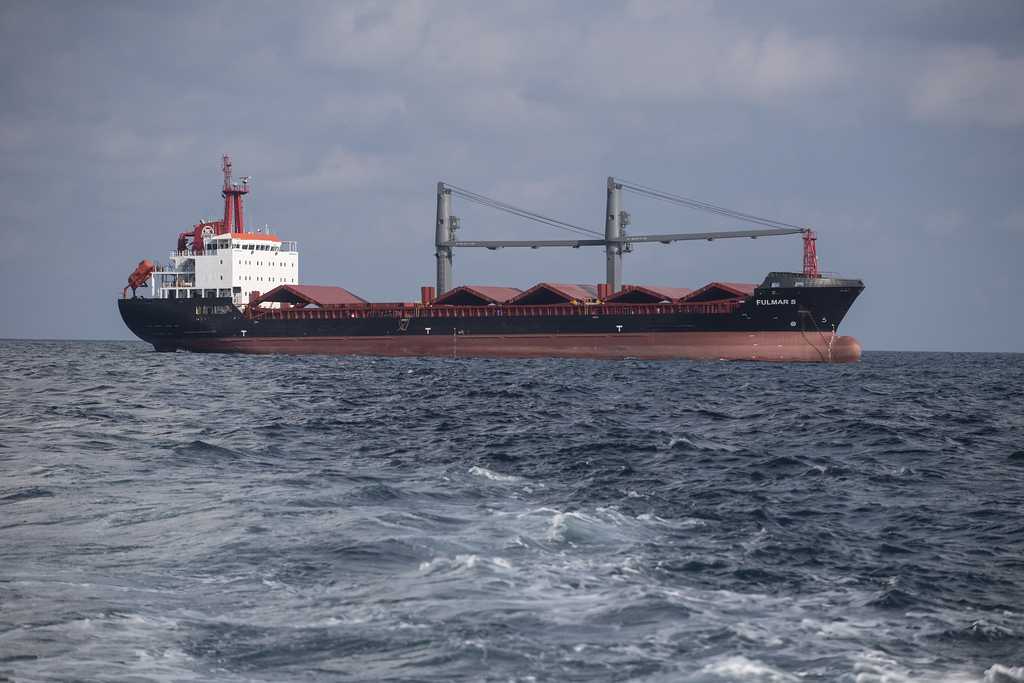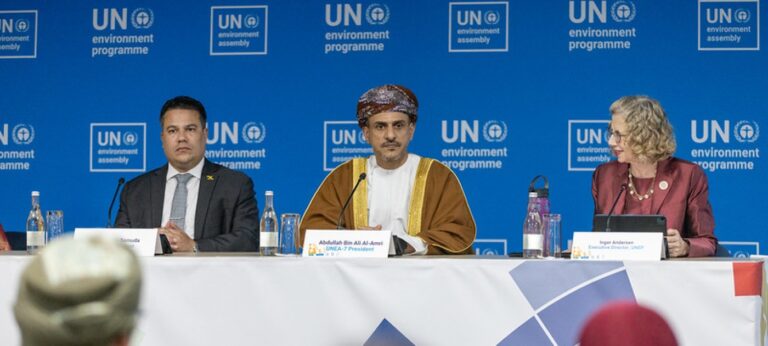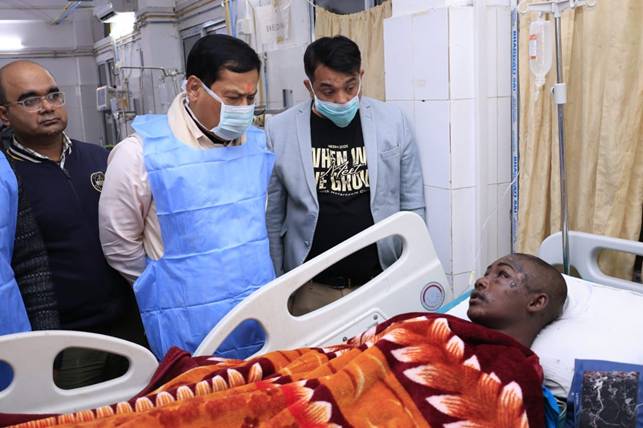
5 August 2022, Istanbul, Turkiye: Commercial grain vessel heading to Ukraine under the Black Sea Grain Initiative. Credit: OCHA
Moscow/Washington/Geneva/New York: On March 13, 2023, Russia decided to cut down the extension of the Black Sea Grain Initiative to 60 days from 120 days. On March 14 (local time), the United States alleged the first direct physical contact between the Russian-American militaries, blaming a Russian fighter jet for downing an unmanned US drone in the Black Sea today.
While Russia denied the charge, the US State Department summoned Russia’s ambassador in Washington to lodge its formal objection over the drone downing. Washington also engaged at high levels with its allies and partners and briefed them on this incident.
The Black Sea, dominated by the Russian Navy, has become a hotbed of the conflict between Russia and West-backed Ukraine.
“…we are engaging directly with the Russians – at senior levels – to convey our strong objections to this unsafe, unprofessional intercept which caused the downing of the unmanned U.S. aircraft… In Moscow meanwhile, Ambassador [Lynne] Tracy has conveyed a strong message to the Russian ministry of foreign affairs,” the State Department Spokesperson Ned Price said today (IST) in Washington.
To a specific question by a journalist on whether the drone incident was a clear Russian aggravation against the United States and allied nations of Ukraine, Price said in a sense, the motivations matter much less than what actually transpired. “We’re not in a position to speak to what the Russians intended to do. We’re not in a position to speak to what their motivations may have been. We are in a position to speak to what happened, and what happened was an unsafe and unprofessional manoeuvre on the part of a Russian aircraft, a manoeuvre that was also tinged with a lack of competence that caused the U.S. military to need to bring this unmanned craft down. That is the result, again, of these Russian actions. We can characterize them, but we can’t characterize the motivations,” he said.
Washington acknowledged that the drone was conducting “routine operations in international airspace and that this was not the first time that the US was flying drones over the Black Sea airspace. A statement from the United States European Command today reaffirmed that “we fly, we sail, we operate everywhere international law allows”. Price said that when it comes to the Black Sea region, U.S. Air Forces in Europe – Air Forces Africa routinely fly aircraft through Europe over sovereign territory and throughout international airspace in coordination with applicable host-nation and international laws. “Of course, this unmanned craft was downed – forced to go down, I should say, in international airspace in what was a brazen violation of international law. And so we are conveying in strong terms our objections to this,” Price asserted.
As it is, the Black Sea has turned into a battle zone and a Ukrainian missile even sank the flagship of Russia’s Black Sea fleet, Moskva, in April 2022.
However, because of the efforts of the United Nations Secretary-General Antònio Guterres and the mediation of Türkiye Russia and Ukraine agreed and signed an agreement on the Black Sea Grain initiative on July 22, 2022, which was initially valid for a period of 120 days to allow safe transportation of grain and foodstuffs from Ukrainian ports. The deal was signed by Türkiye, Russian Federation, Ukraine and the UN as the witness there. On November 17, 2022, the agreement was extended for a further 120 days and ahead of a deadline later this week, the UN and Türkiye said they were hopeful for a second extension.
On March 13, 2023, Martin Griffiths, Under-Secretary-General for Humanitarian Affairs and Emergency Relief Coordinator, and Rebeca Grynspan, Secretary-General of the UN Conference on Trade and Development met with a high-level delegation from the Russian Federation led by Deputy Foreign Minister Sergey Vershinin. The United Nations Office for the Coordination of Humanitarian Affairs (OCHA) reported the announcement made by the Russian Federation regarding an extension of the Black Sea Grain Initiative for 60 days. Russia complained that its agricultural exports were being restricted. While OCHA mentioned confirmation from the UN Secretary-General that the UN will do everything possible to preserve the integrity of the Black Sea Grain Initiative and ensure its continuity, in a media briefing in New York on March 14, 2023 (local time), Stéphane Dujarric, Spokesman for the Secretary-General said, “within the context of the Black Sea Grain Initiative, the agreement foresees a renewal of 120 days, but, in the present circumstances, the Secretary-General and his team are focused, in close contact with all of the parties, on doing everything possible to ensure the continuity of the Initiative”.
Russia seems in no mood to relent. Moscow today termed as “hypocritical”, the statements by Washington that Russian agricultural exports are not covered by the unilateral sanctions of the US and its satellites. “The reality is the opposite. UNCTAD Secretary-General Rebeca Grynspan, the head of a working group whom Mr Guterres instructed to work on the Russia-UN memorandum, has faced this reality in full measure,” the Russian Foreign Ministry Spokeswoman Maria Zakharova said.
The UN acknowledges that the continuation of the Black Sea Grain Initiative is crucial for global food security, as grain and fertilizer prices and availability have not returned to pre-war levels, causing hardship, particularly in developing countries. So far the Initiative has allowed the exports of 24 million MT of grains and over 1,600 secure vessel voyages through the Black Sea with 55 per cent of food exports going to developing countries.
However, Zakharova justified the Russian decision to cut down the extension period by half and described it as “a cold shower” for the American and European Union officials. “We realise that there was confidence in Western capitals that everything would continue to follow a scenario in which they benefit. According to this scenario, Russian agricultural exports would be blocked whereas grain exports from Ukraine would continue growing unimpeded, bringing huge profits to the Kyiv regime that it needs, in part, to pay for the never-ending flow of Western weapons and ammunition,” she said. Accusing the US and its allies of distorting the facts, she advised them to read the Istanbul agreements and statements made by UN Secretary-General Antonio Guterres and other UN top officials to the effect that the Black Sea Initiative and the Russia-UN memorandum on bringing Russian fertiliser and food to world markets are an interconnected, package deal.
Dujarric said that regarding the parallel memorandum of understanding focused on the export of Russian food and fertilizer, Rebeca Grynspan, the Head of the United Nations Conference on Trade and Development (UNCTAD) and her team, as well as the Secretary-General himself, “have spared no efforts to facilitate that trade”. He claimed that though “meaningful” progress had been made, “it is true that some obstacles remain, notably with regard to payment systems”. He added: “Our efforts to overcome those obstacles will continue unabated. The agreement regarding the Black Sea Grain Initiative, alongside the memorandum of understanding on the export of Russian Federation food and fertilizer, are both critical for global food security, especially in developing countries.”
– global bihari bureau





